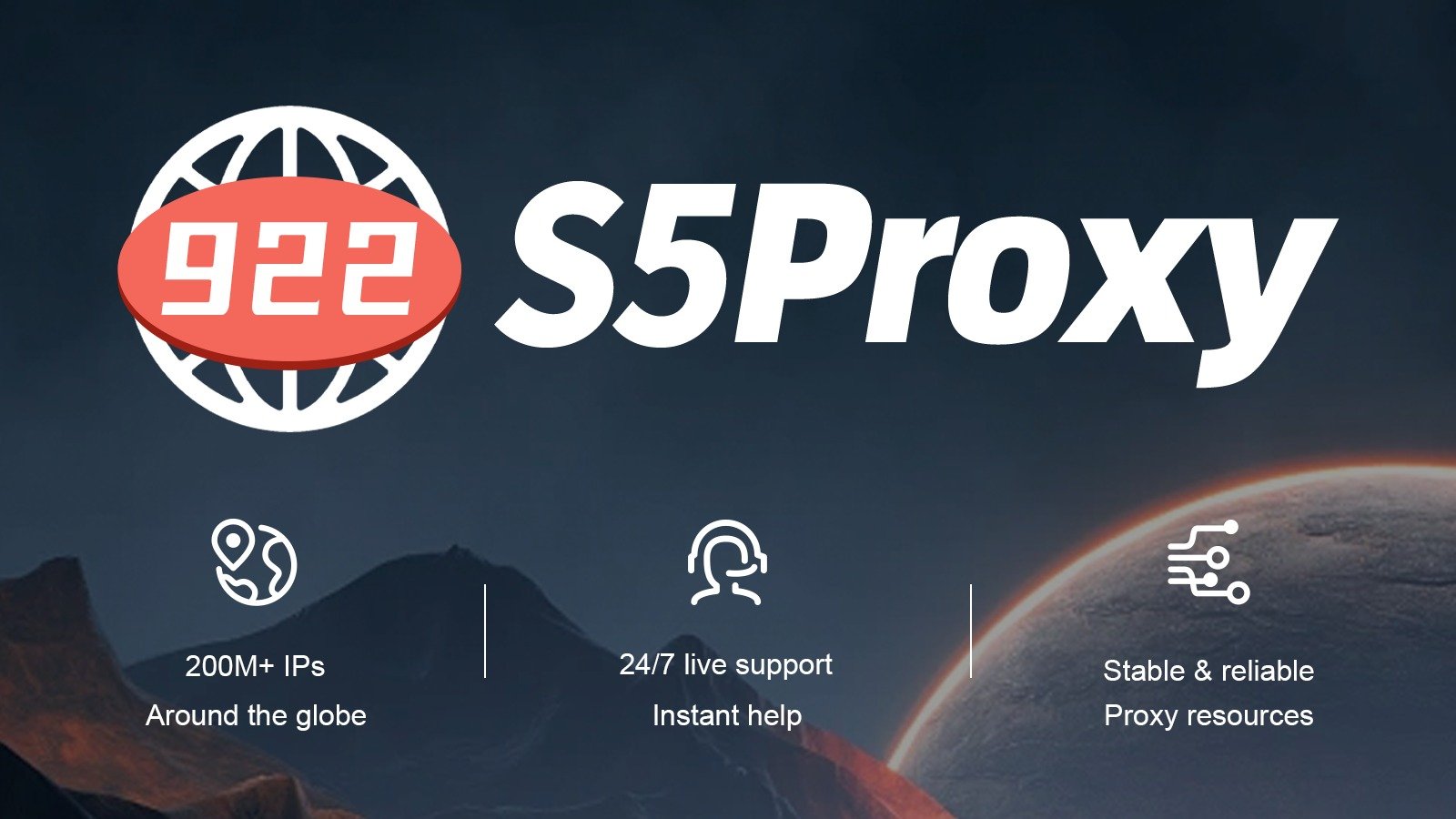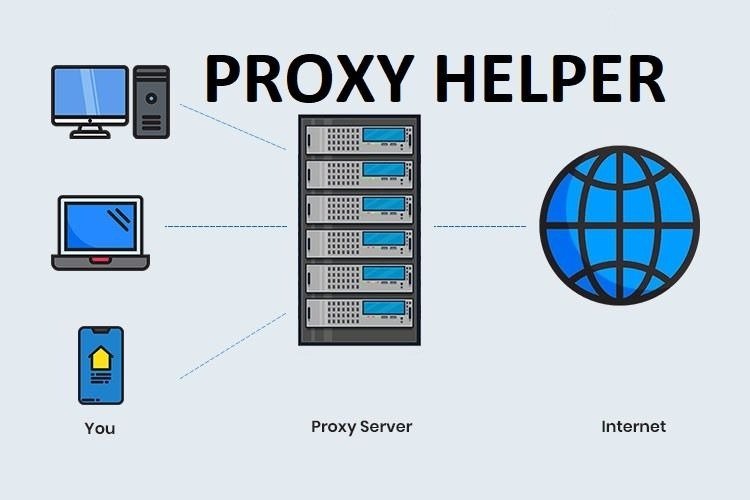In this digital age, the term Proxy is no longer unfamiliar to many people. However, to fully understand Proxy, we need to explore it from different perspectives. First, let’s understand what Proxy is.
Introduction to Proxy
Proxy, also known as Proxy server, works as a “middleman” in the communication process between the user and the internet. When you request access to a webpage, the Proxy server receives that request, forwards it to the website you want to visit, and then relays the website data back to you. In this way, Proxy helps reduce security risks, enhance privacy, and provide access to blocked or restricted websites.
There are many types of Proxies, from basic ones like HTTP Proxy, SOCKS Proxy to more complex ones like Reverse Proxy, Transparent Proxy. Each proxy has its characteristics and applications. For instance, HTTP Proxy only supports access through the HTTP protocol, suitable for web surfing, SOCKS proxy supports more protocols, from HTTP, FTP to SMTP, and Reverse proxy is often used in distributed systems for load balancing and enhancing security.
The advantages of Proxy come from its capabilities. Proxy helps hide the user’s IP address, enhancing security and privacy levels. Especially, in some cases, using a Proxy can improve internet access speed, particularly when using a local Proxy to store and retrieve popular content.
However, Proxy is not always perfect. If you are not careful, using Proxy could expose you to security risks. For instance, if you use an unreliable Proxy, your personal information could be exposed. Therefore, choosing a safe, trustworthy Proxy is very important.
Proxy is a useful tool in the modern internet world, enhancing security, hiding IP addresses, and accessing blocked websites. However, choosing and using Proxy correctly also requires knowledge and caution. Don’t hesitate to learn more about Proxy and how it can support you on the internet.
Buy cheap Proxy at Proxyv6.net
Prominent uses of Proxy
Speeding up web access
The Proxy server can cache previously accessed websites in its memory. When a user requests that website, the proxy server returns the content from its cache instead of accessing the entire website again, speeding up page loading.
Security and Anonymity
When using a proxy server, the user’s actual IP will be hidden and replaced with the IP of the proxy server. This increases the level of anonymity and security when accessing the internet.
Blocking Access
Proxy servers are also used to block access to specific websites. This is an important feature in business environments, schools, libraries, etc., to restrict access to inappropriate or unwanted content.
Bypassing Firewalls
Some users use proxy servers to access websites blocked due to geographical restrictions. For example, if a website only allows access from a specific country, users can use a proxy server in that country to access the website.
Controlling and Recording Internet Access
In a business environment, a proxy server can help administrators control and record internet traffic. This can help detect abnormal activities and protect the internal network from security threats.
Load Distribution
In a large system, the proxy server can also help distribute the load, ensuring smooth and stable system operation.
Providing Content Filtering Features
Some proxy servers allow content filtering, such as blocking advertisements, preventing malicious scripts, or blocking inappropriate content types.
Bandwidth Reduction
By storing data frequently requested in its cache, the proxy server can help reduce bandwidth usage, thereby saving costs.
Software Version Control
In a business environment, a proxy server can be configured to only allow specific software versions to be downloaded, helping manage software versions and preventing unwanted software.
Serving Software Development
Developers can use a proxy server to test their applications in different network environments. Proxies can also help them debug applications by recording HTTP requests and responses.
Automatic Translation
Some proxy servers can automatically translate web content into the language chosen by the user.
Simple and Quick Proxy Usage Guide
Step 1. Choose Proxy Service
There are many proxy services on the internet. Some of them are free, while others are paid. Free proxy services are usually slower and less secure than paid services.
Step 2. Install Proxy
After you have chosen a proxy service, you will need to install it. If you choose an online proxy service, you may just need to visit that website. If you choose a software proxy service, you will need to download and install that software.
Step 3. Configure Proxy
First, you need to find the IP address and port of the proxy server you chose. Then, configure your web browser or system to use that proxy server. In Chrome, you can do this by going to Settings > Advanced Network > Change proxy settings. On Windows, you can do this by going to Control Panel > Network and Internet > Internet Options > Connections tab > LAN settings.
Step 4. Use Proxy
Now, when you access the internet, your web traffic will go through the proxy server. This can help you access blocked websites or reduce the risk of being tracked online.
Buy Cheap Proxies at Proxyv6.net
Are you looking for a place to buy cheap proxies while still ensuring quality? Don’t worry, Proxyv6.net will be the perfect choice for you. Here, we provide cheap proxy services but still guarantee stability and high speed.
At Proxyv6.net, we know that you need a reliable, fast, and efficient proxy service. Therefore, we have designed a high-quality, affordable, easy-to-set-up, and easy-to-use proxy system.
Buy cheap proxies at Proxyv6.net, you will enjoy professional, fast, and friendly customer support services. Need consultation? Need support during use? Our support team is always ready to serve you.
What is a proxy?
A proxy server is an intermediary between the user and the Internet. It acts as a middleman, accepting requests from the user and then retrieving information from the Internet on behalf of the user. It can also be used to hide a user's real IP address, protect the user from security threats, and offer access to websites that are blocked or restricted.
Why should I use a proxy?
There are several reasons why users might choose to use a proxy. Some common reasons include: to enhance security, to hide their real IP address, to overcome access issues (like accessing geographically restricted content), to increase network speed and performance (in the case of caching proxies), and more.
What types of proxies exist?
There are several different types of proxies, including:
Transparent Proxy: This type of proxy is typically one that the user is unaware they are using. They are often employed in businesses or schools to control and monitor web browsing activities.
Anonymous Proxy: Provides anonymity to users by hiding their real IP address.
High Anonymity Proxy (or Elite Proxy): This type of proxy not only hides the user's IP address but also does not reveal that a proxy is being used.
Reverse Proxy: Used to redirect requests from multiple clients to a single server, which enhances the performance and reliability of web applications.
Datacenter Proxy: This type of proxy is hosted on servers within data centers. They often provide high speed and stability but don't offer the level of anonymity that Residential Proxies do.
Residential Proxy: This type of proxy uses real home IP addresses, offering a high level of anonymity, but might not be as stable or fast as Datacenter Proxies.





